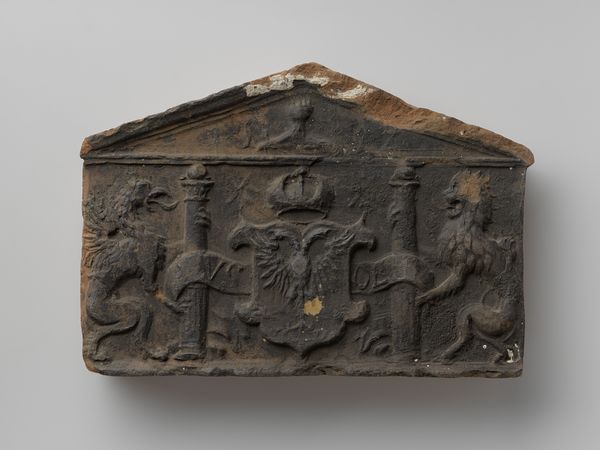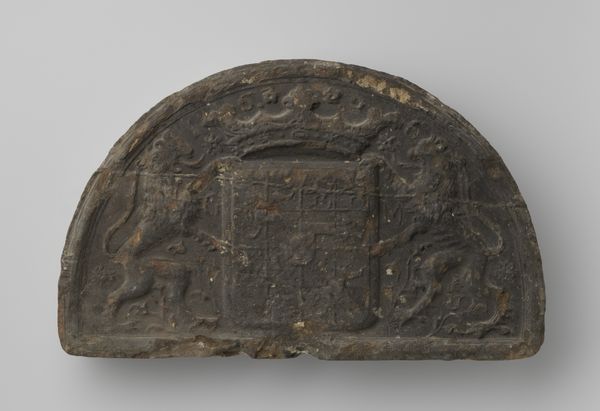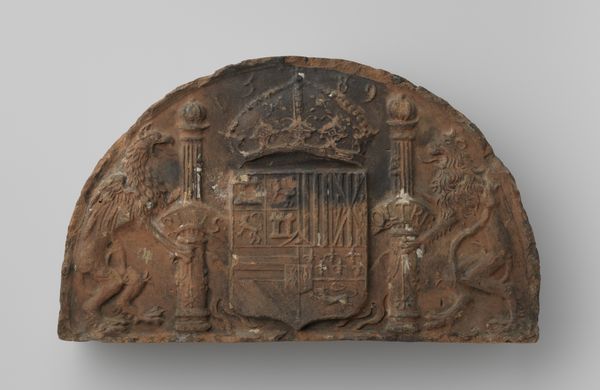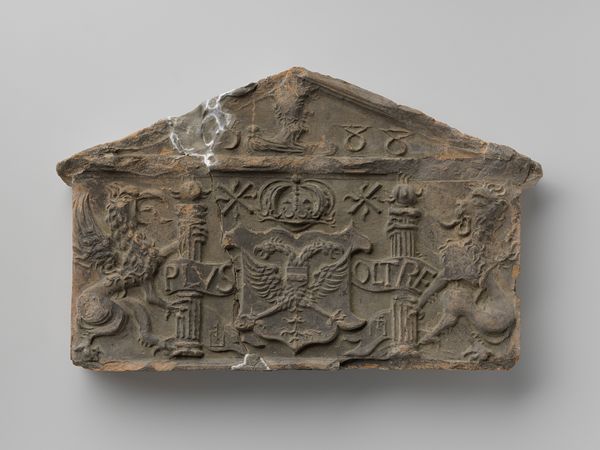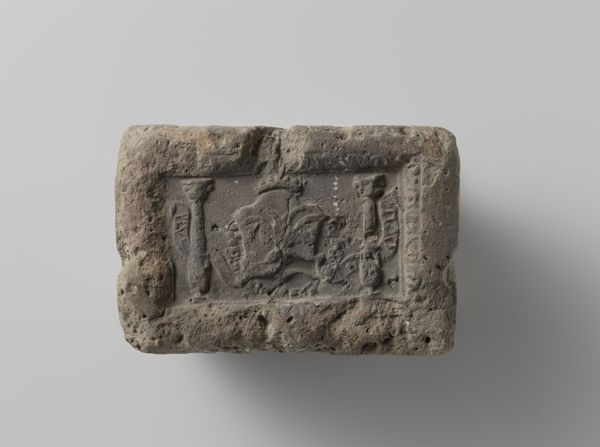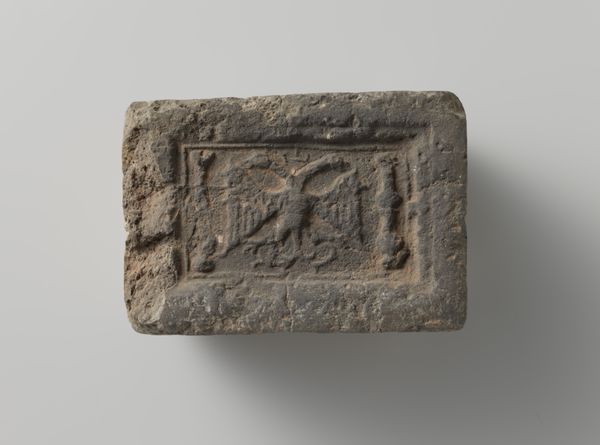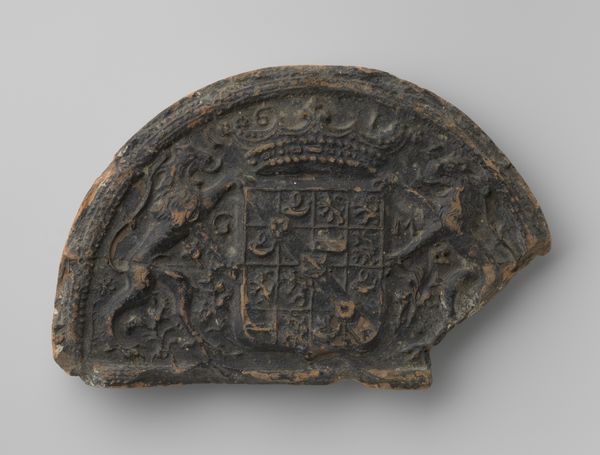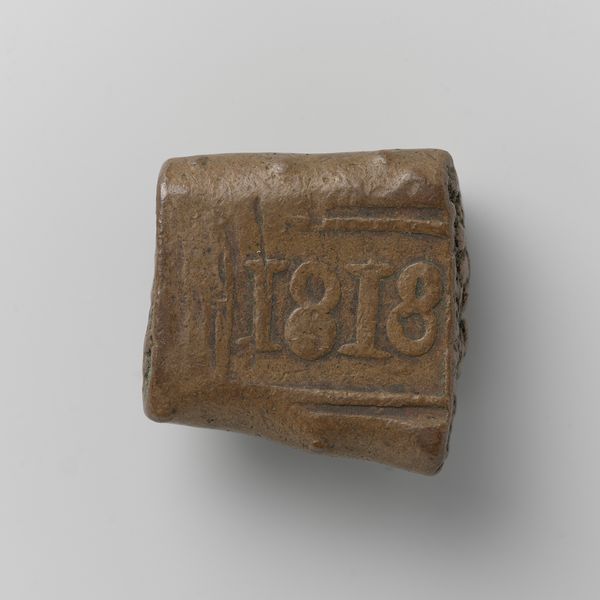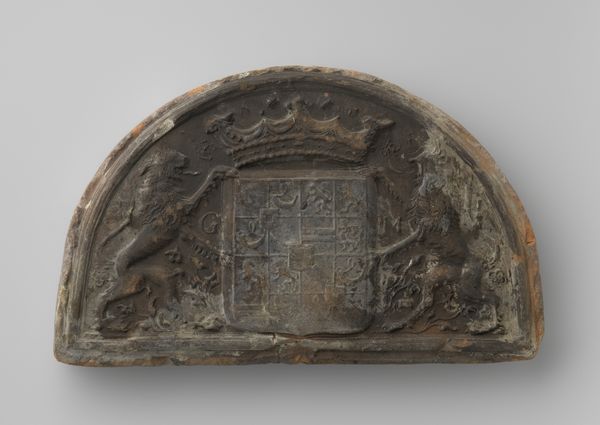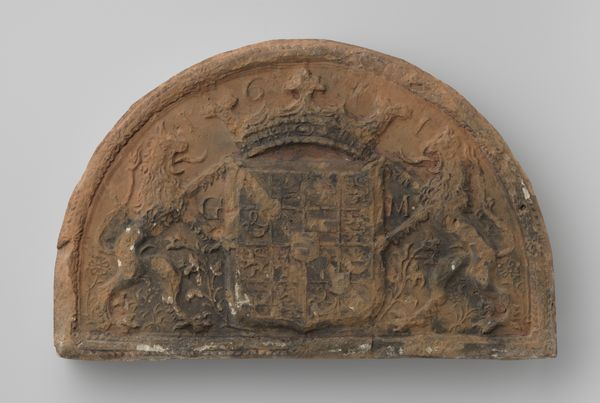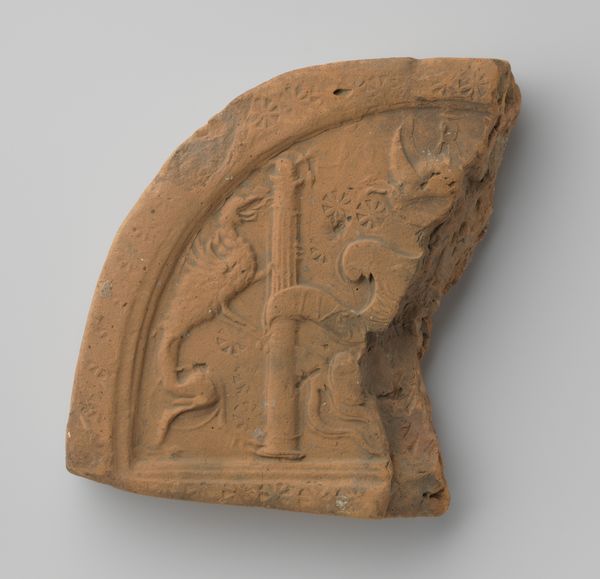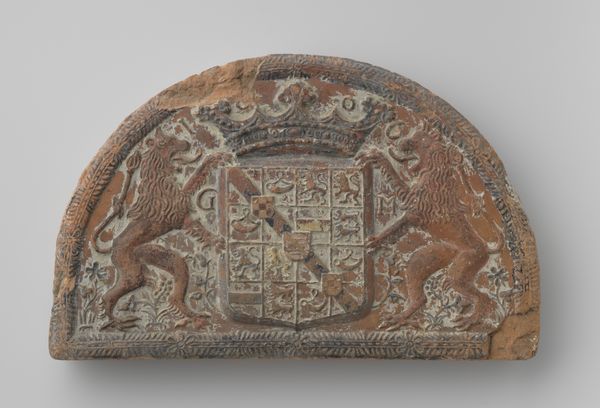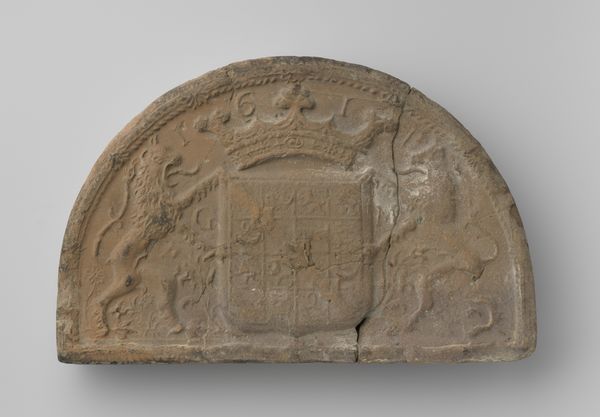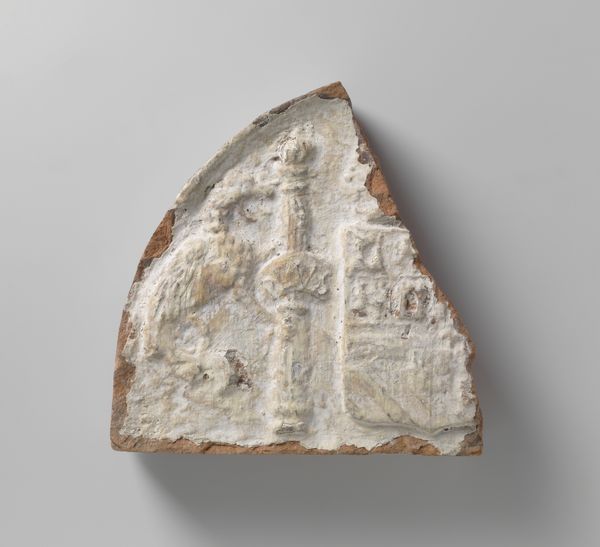
Haarddeksteen met het wapen van Prins Maurits van Oranje Nassau 1567 - 1625
0:00
0:00
anonymous
Rijksmuseum
carving, relief, sculpture
#
portrait
#
medieval
#
carving
#
sculpture
#
relief
#
sculpture
#
history-painting
Dimensions: height 20 cm, width 33 cm, depth 6.2 cm
Copyright: Rijks Museum: Open Domain
This is a hearth cover stone, probably made in the Netherlands sometime in the 17th century, but by an anonymous maker. It's made of earthenware, a common material which undergoes a transformation in the kiln, permanently hardened, though still brittle. The design, featuring the coat-of-arms of Prince Maurits van Oranje Nassau, would have been carved in the wet clay before firing. The material itself has a fascinating relationship to power and class. Clay is literally earth, easily available to all. Yet the knowledge to transform it – to refine it, mould it, fire it, and decorate it – this is specialised knowledge. And in this case, it has been put in the service of an aristocratic symbol. We see a combination of the universal and the particular, the humble and the exalted. Thinking about the way things are made helps us appreciate how deeply entwined craft and society really are. It challenges us to look beyond the image to the labor and skills involved in its creation, and the social context in which it was made.
Comments
No comments
Be the first to comment and join the conversation on the ultimate creative platform.
